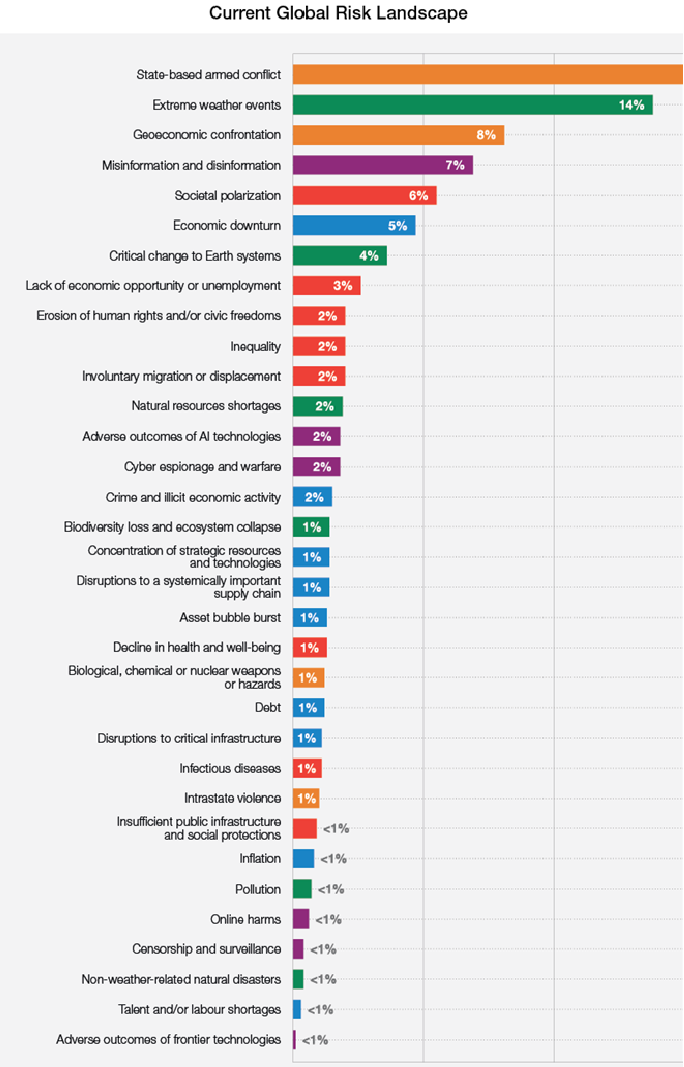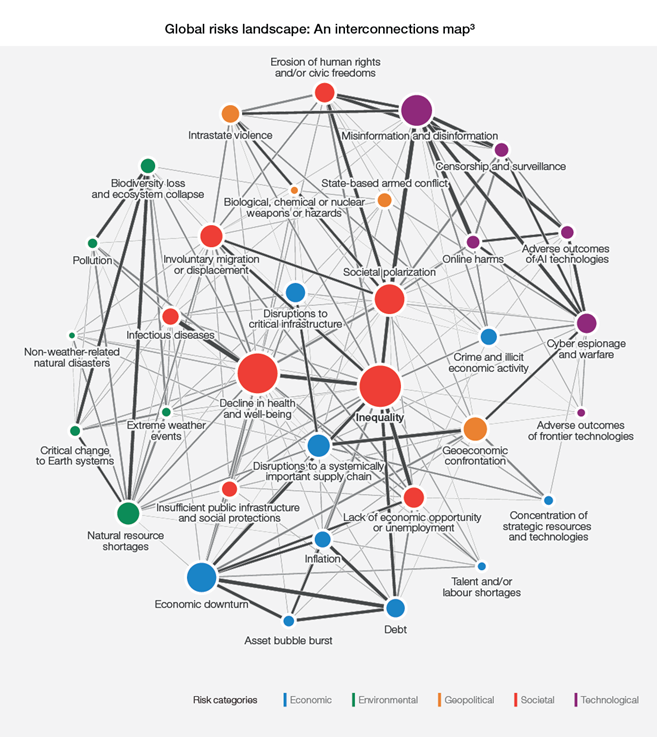7667766266
enquiry@shankarias.in
Recently World Economic Forum has released Global Risk Report 2024.

